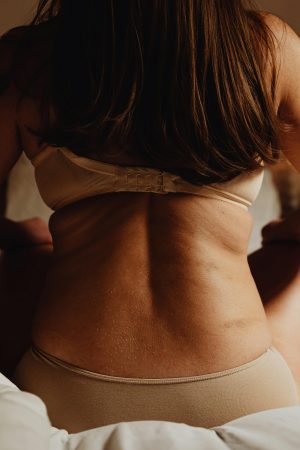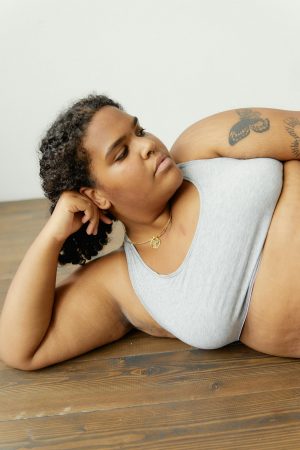Bra on or bra off, when you hop into bed? Wearing a bra to sleep is a topic that has been debated for ages. Is it actually harmful to your health, or not? Plus, who should be wearing a bra to bed, and who shouldn’t? We’ll cover it all below.
ALSO SEE: Does taking fenugreek make your breasts grow?
A common misconception is that wearing a bra to bed increases the risk of breast cancer – a major cause of health anxiety for many women. Women around the world will be happy to know that there are currently no existing facts to back up this claim. As per the American Cancer Society, there’s no evidence that compression of the lymph nodes by bras causes breast cancer.
Generally, wearing a bra to bed should not pose a risk to your health, overall. Experts, including breast surgical oncologist Dr. Margaret Thompson, say that it comes down to comfort and personal preference. The answer, then, should ultimately differ from one woman to another.
Pros and cons of sleeping with a bra on
An article published by Healthline states that women with larger breasts, lumpy (fibrocystic) breasts, and women with breast implants, could actually benefit from sleeping with a bra on. On the other hand, bras that are poorly fitted or old (and dirty) can cause skin irritation and discomfort that will keep you from getting a good night’s sleep.
Let’s have a look at some of the known benefits and drawbacks of sleeping with a bra on:

Pexels / Karolina Grabowska
Pro: Sleeping with a bra on may alleviate breast pain
Breast pain, or mastalgia, affects a significant number of individuals and can disrupt sleep. For women who experience this discomfort, often due to hormonal changes, large breasts, or a recent surgery, wearing a soft, supportive bra might help. A bra can reduce breast movement, which can ease pain and lead to a better sleep.
Pro: Sleeping with a bra on can support lactating breasts
For those who are breastfeeding, a supportive bra can be beneficial. It helps keep nursing pads in place, reduces nipple chafing, and maintains hygiene. A well-fitting sleep bra can also support the structure of the breasts, which can be particularly useful during the night when movement might otherwise lead to discomfort.

Pexels / Darina Belonogova
Pro: Sleeping with a bra on could lower the risk of a fungal infection
The warmth and moisture under the breast area can create an ideal environment for fungal infections. A bra helps absorb moisture and reduces friction, which may lower the risk of getting stuck with a fungal infection. Even a camisole with a built-in shelf bra can serve this purpose.
Pro: Sleeping with a bra on may ease nipple irritation
Nipple irritation, experienced by many women during hormonal fluctuations or breastfeeding, may be eased by wearing a soft, well-fitted sleep bra that can minimise this friction and reduce the likelihood of sore nipples. Check with your GP first, always.
Pro: Sleeping with a bra on can help with post-surgery recovery
For women recovering from breast or cardiac surgeries, a supportive bra can be crucial. It helps keep surgical sites protected, reduces movement, and can aid in managing post-operative discomfort and fluid collection. Always follow your surgeon’s advice regarding bra use during recovery.
ALSO SEE: 8 reasons your breasts hurt that have nothing to do with cancer

Pexels / Maryia Plashchynskaya
Con: Sleeping with a bra on could cause skin irritation
A poorly fitted or dirty bra can cause skin irritation and infections. Tight bras or those with underwire can create ridges and chafing, while bras that are too loose might rub against the skin. To avoid these issues, choose a clean, well-fitting bra and ensure it is made from soft, breathable fabric.
Con: Sleeping with a bra on may cause restricted circulation
Wearing a bra that is too tight, especially one with an underwire, can potentially restrict circulation. This can lead to discomfort and disturbed sleep. It’s important to select a bra that’s snug but not constricting.
ALSO SEE:
Feature Image: Pexels / Ofir Eliav

